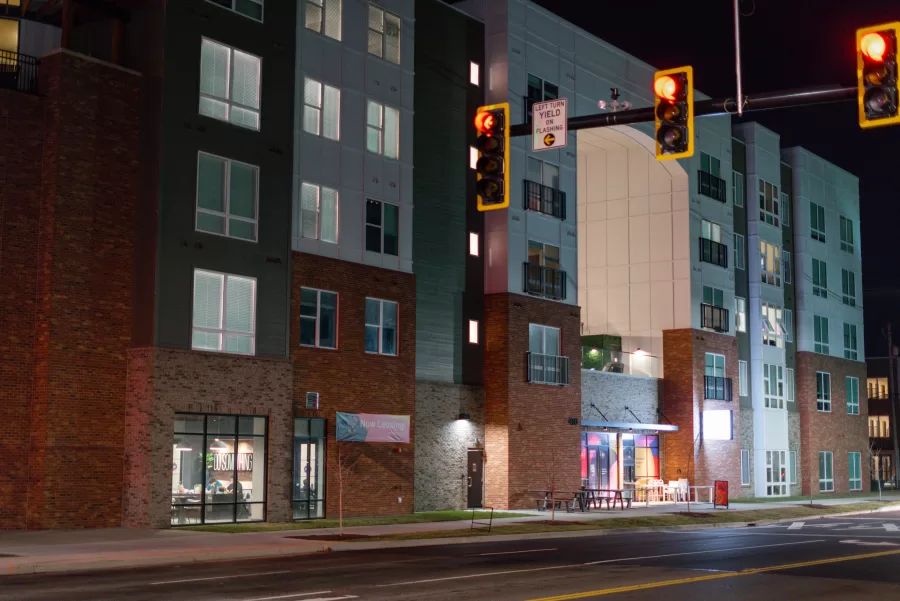Urbana residential energy rates triple
At Gather Illinois, an apartment complex located off of North Lincoln Avenue in Urbana, lights can be seen on at night. Due to recent events, electricity prices for Urbana residents has increased drastically to approximately three times the price of the last two years.
Jan 24, 2023
Last updated on Jan. 25, 2023 at 02:24 p.m.
In December, energy contracts for residents of Urbana expired, causing residential power rates to nearly triple. A new contract for Urbana residents begins in February, but the relatively high prices are here to stay for the near future.
“What’s happened very recently is a combination of a bunch of factors,” said Scott Tess, a sustainability and resilience officer in public works at the city of Urbana. Tess cited inflation, increased gas exports to Europe, the retirement of coal-fired power plants as well as slower-than-expected deployment of renewables in Illinois as reasons for the rising prices.
From December 2020 to December 2022, Urbana residents had a price of 4.49 cents per kilowatt hour. Under the new contract starting in February, residents will be paying 12.21 cents.
“Typically the way I control my budget is by not eating out,” said Javier Garcia, graduate student studying engineering, when considering how the new higher price might change his spending. In order to adapt his budget, Garcia said he would “have to skip the meal I have outside of home on Fridays or Saturdays” in favor of staying in.
Get The Daily Illini in your inbox!
As for trying to lower the bill by using less power, Garica was not optimistic his usage habits could change. “All the power we use, we use because we need to,” he said. “It’s a necessity that we have.”
Though residents are experiencing a very sharp increase in power costs, Tess said he doesn’t believe the new deal is bad for residents in the current market. “It’s cheaper than the default option, which is the Ameren basic generation service,” said Tess.
Ameren is the main energy provider in the area. From the end of the old contract in December to the beginning of the new contract in February, residents have been paying the Ameren price of 12.36 cents per kwh. Urbana’s new contract will reduce this price by 0.15 cents per kwh.
“We’re getting a price for something like 15,000 households,” Tess said, explaining how buying as a city can lead to a better deal. “And that is giving us better leverage in the market on behalf of the residents to get better electricity prices.”
The average price for energy is 14 cents per kwh in Illinois and 23 cents across the country.
Tess said the new higher prices may not be around forever, but that’s only a prediction. “I can only look in the crystal ball,” he said.






